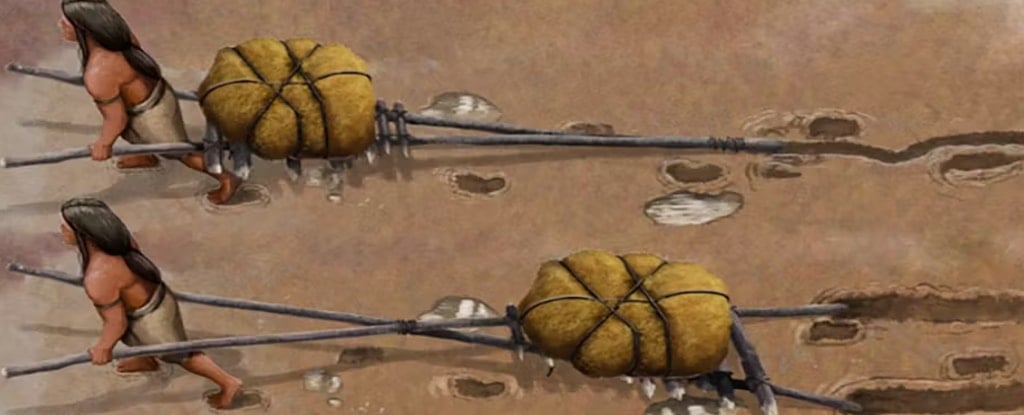The oldest evidence of a wheelbarrow has been found! Traces that are 22 thousand years old...

The White Sands region has been in the news in recent years for footprints that pushed back the date of the first humans to the American continent by 8,000 years. However, new traces found here show that people used drag systems made of tree poles for transportation.
The research team, led by Prof. Matthew Robert Bennett and Assoc. Prof. Sally Christine Reynolds from Bournemouth University in the UK, discovered parallel drag marks intersecting with the footprints, preserved in dried mud beneath the sediments, and continuing for hundreds of metres.
Researchers tested how a similar system could create tracks in experiments conducted off the coast of Dorset (UK) and Maine (USA). In the experiments, the ends of two poles were dragged along the ground, leaving similar tracks in the mud. It is thought that this system could have been used to transport meat from hunted animals or to carry camping equipment.

There are many human footprints around the tracks, most of which belong to children. This suggests that the children walked with the adults pulling the sleds (travoi). When descendants of the indigenous people of the area examined these tracks, they thought they were probably makeshift carts used to transport meat after hunting or to move the camp.
The sled is one of the primitive transportation systems used approximately 5,000 years before the invention of the wheel. Although historical documents show that indigenous people carried sleds with dogs or horses, this discovery proves that people also did this with their own power.
Researchers say the discovery could be a significant turning point in transportation history, offering important clues not only about the lives of early Americans but also about how people organized their mobile lives.
SÖZCÜ






